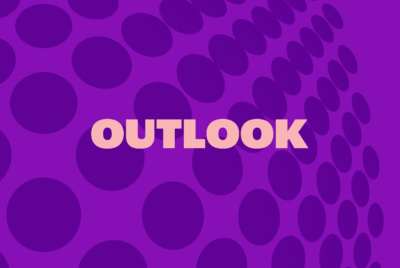More than half of consumer packaged goods companies and retailers expect holiday unit sales growth compared with last year, offering a somewhat rosy outlook amid a backdrop of economic pressure on U.S. consumers.
The results, published today by Advantage Solutions in its third quarter Advantage Outlook, reveal that 48% of both retailers and manufacturers expect 1-5% unit volume sales growth this holiday season, largely driven by consumer demand and product availability. A 1% increase in unit volume translates to an incremental $2.5 billion in sales, not taking into consideration the effect of pricing changes from 2022.
The Advantage Outlook, a quarterly survey that includes responses from senior-level executives at dozens of the leading retailers and consumer products companies across the U.S., is produced in collaboration with Nielsen IQ and offers unique insights to the top trends at retail.
With relationships with more than 4,000 consumer goods companies and most of the largest U.S. retailers, Advantage sits at the intersection of brands and retailers with extensive reach and a breadth of services that help convert shoppers into buyers.
Results from the survey, conducted in October 2023, show that retailers and manufacturers continue to be buffeted by inflation. In response, retailers are increasing their focus on private brands, value-priced products and promotions as a strategy to address the ongoing challenges. Manufacturers, meanwhile, are targeting the trend of in- and at-home indulgence, which is fueled by shoppers opting to treat themselves at home instead of spending on big-ticket items.
A gulf between retailers and manufacturers persists on innovation. While retailers say they are seeking innovation products at the value price point, most manufacturers say they intend to innovate at mainstream or premium price points. The disconnect presents a “wide-open lane for manufacturers that can innovate at lower price points for their respective categories,” says Jill Blanchard, the study’s author and president of enterprise client solutions for Advantage Solutions.
Blanchard notes that product innovation traditionally has fallen into all price tiers, and “that’s what shoppers expect to see at shelf.”
In addition to inflationary challenges, theft persists as a growing challenge for retailers, with many continuing to search for alternative methods to curb in-store theft.
“While inflation continues to be top of mind for shoppers, our report found that retailers and manufacturers are still expecting a busy holiday season,” Blanchard says. “However, while they are expecting to be busy in the coming months, retailers are continuing to search for new and innovative ways to combat other retail challenges such as theft.”
Additional findings from the Q3 Advantage Outlook include:
- The rise of private label: Fifty-three percent of retailers say expanding private label products is their top strategy for growth over the next 12 months, followed by promotions. To compete with the growth of private brands, a majority of manufacturers surveyed (60%) say they are planning to rely on marketing the quality of their brand and introducing new innovations.
- The impact of theft: With in-store theft continuing as an ongoing challenge for retailers, many depend on locking products as a method to curb and deter shoplifting. But, the survey shows, a majority of shoppers say they will forego buying a locked product or purchase the item elsewhere instead of asking a store associate for assistance.
- Return of student loan repayment: As consumers began to resume repayments on their student loans, retailers have braced for impact, with more than half of retailers expecting a negative effect on their business. In anticipation of the impact, 39% of retailers indicate their top strategy over the next 6 months will be to expand private brands, while 33% say they will increase the use of promotions.
For more insights, download the full Q3 2023 Advantage Outlook here.




